Unbottle Your Routine: Sustainable Alternatives to Conventional Shampoo Bottles
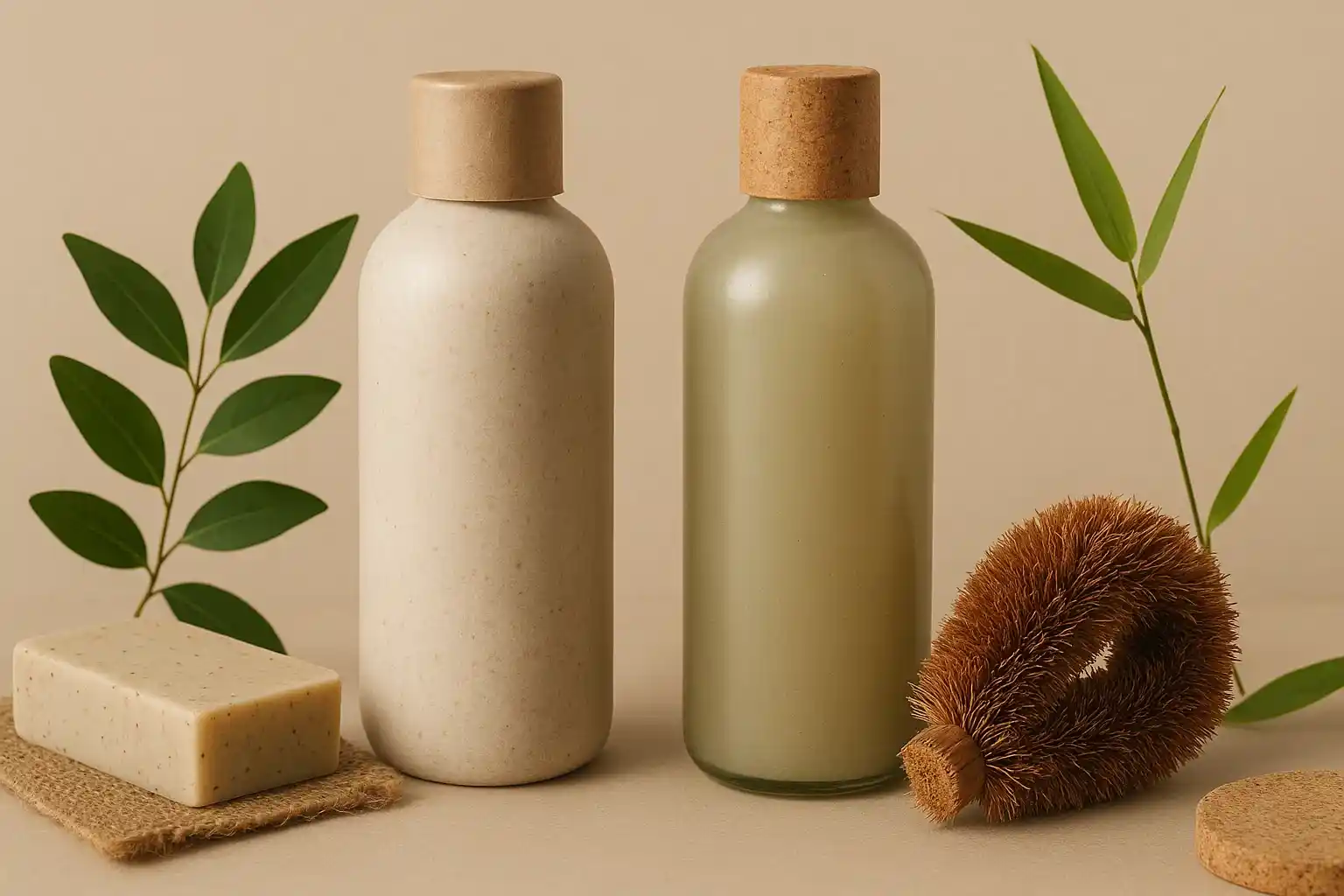
The simple act of washing our hair is a fundamental part of our personal care routine, a practice repeated countless times throughout our lives. For decades, the standard format for shampoo has been liquid contained in plastic bottles. While these bottles offer convenience in dispensing and storage, their widespread use contributes significantly to the ever-growing problem of plastic waste. The sheer volume of shampoo bottles discarded globally each year represents a considerable drain on resources and a major contributor to landfill accumulation and plastic pollution in our oceans and ecosystems. Furthermore, conventional liquid shampoos often contain a high percentage of water and a variety of synthetic additives, including sulfates, silicones, and artificial fragrances, which can have environmental and personal health implications.
The lifecycle of a conventional shampoo bottle is a prime example of linear consumption. Fossil fuels are extracted to create the plastic, energy-intensive processes are employed for manufacturing the bottle and the liquid contents, and often, these products are transported long distances. After the shampoo is used, the bottle is frequently discarded, destined to persist in the environment for centuries. The environmental burden of this cycle, multiplied by billions of consumers worldwide, underscores the urgent need for more sustainable alternatives in our hair care routines.
Fortunately, a range of effective and readily available alternatives to conventional shampoo bottles exists, offering the same cleansing power without the associated plastic waste and often with more natural ingredient formulations. By embracing shampoo bars, utilizing refill stations for bulk liquids, or opting for larger bulk liquid containers, we can significantly reduce our plastic consumption in the bathroom and make a more environmentally conscious choice for our hair care needs. These sustainable swaps offer a way to cleanse our hair effectively while minimizing our impact on the planet and often providing a more minimalist and travel-friendly approach to our personal care routine.
Washing Away Waste: Exploring Sustainable Shampoo Alternatives
Moving beyond the ubiquitous plastic bottle opens up a world of more environmentally friendly and often more natural ways to cleanse our hair:
Shampoo Bars: Concentrated Cleansing Without the Bottle
Shampoo bars offer a solid, concentrated form of shampoo that eliminates the need for plastic bottles altogether. These bars are typically made with natural ingredients, including plant-based oils, butters, and essential oils, and provide the same cleansing power as their liquid counterparts in a compact and travel-friendly format. By choosing shampoo bars, we significantly reduce plastic waste and often opt for formulations that are free from harsh sulfates and synthetic additives. Brands like Ethique, HiBAR, and many smaller artisanal producers offer a wide variety of shampoo bars catering to different hair types and concerns, providing a convenient and highly sustainable alternative to bottled shampoo.
Refill Stations: The Circular Solution for Liquid Lovers
Refill stations, increasingly available at zero-waste stores, co-ops, and some larger retailers, offer a circular solution for those who prefer liquid shampoo. By purchasing a reusable bottle once and then refilling it with bulk liquid shampoo at these stations, we can significantly reduce the number of plastic bottles we consume. This system encourages the reuse of packaging and supports businesses that prioritize bulk dispensing and waste reduction. Many refill stations also offer a selection of more natural and environmentally friendly shampoo formulations.
Bulk Liquid: Buying Big, Reducing Waste
Opting for larger bulk liquid shampoo containers, even if they are still plastic, can be a more sustainable choice than purchasing numerous smaller bottles. By buying in bulk, we reduce the amount of plastic used per unit of shampoo and decrease the frequency with which we need to purchase new bottles. Look for larger sizes with recyclable packaging and consider decanting the shampoo into a smaller, reusable bottle for daily use in the shower. Brands like Plaine Products offer liquid shampoo in aluminum bottles that can be returned for refilling, creating a closed-loop system.
Embracing Mindful Hair Care: Choosing What Works for You and the Planet
Transitioning to sustainable shampoo alternatives may require a slight adjustment to your hair care routine:
- Lathering: Shampoo bars may require a slightly different technique to lather effectively; try rubbing the bar directly onto wet hair or creating a lather in your hands first.
- Storage: Store shampoo bars in a dry place to prolong their lifespan.
- Transition Period: Some individuals may experience a short transition period as their hair adjusts to a shampoo bar, especially if they have been using products with silicones.
- Ingredients: Pay attention to the ingredient lists of bulk liquids and shampoo bars to ensure they meet your hair's needs and align with your preference for natural formulations.
By consciously choosing sustainable alternatives to conventional shampoo bottles, we can wash our hair effectively while significantly reducing plastic waste and often opting for more natural and less harmful ingredients. This simple swap in our personal care routine contributes to a more minimalist and environmentally responsible lifestyle.
Related Blogs
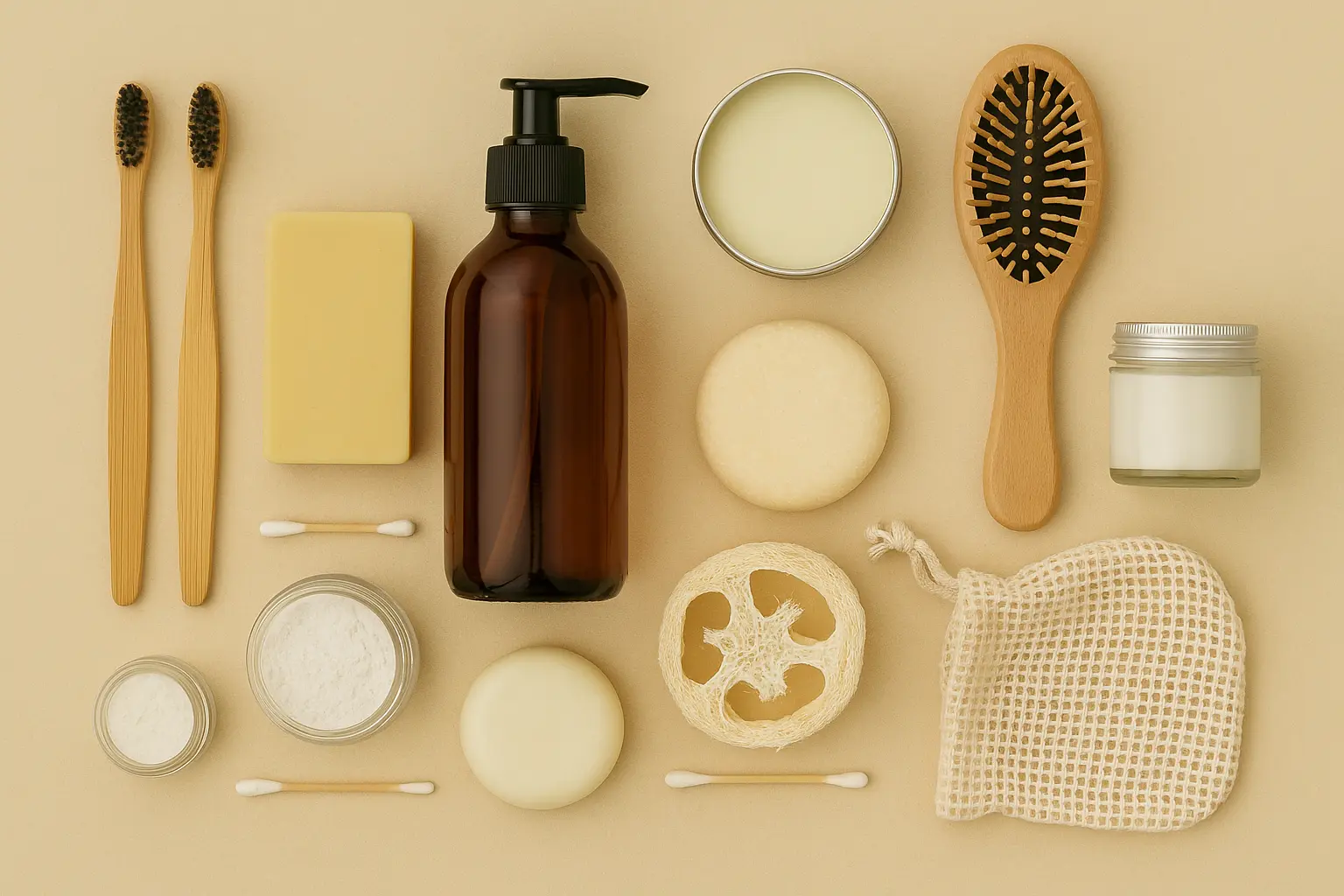
Stepping Lightly into Self-Care: Your Expansive Guide to the Best Zero-Waste Personal Care Swaps for Beginners
Insights on best zero-waste personal care swaps for beginners in a sustainable way.
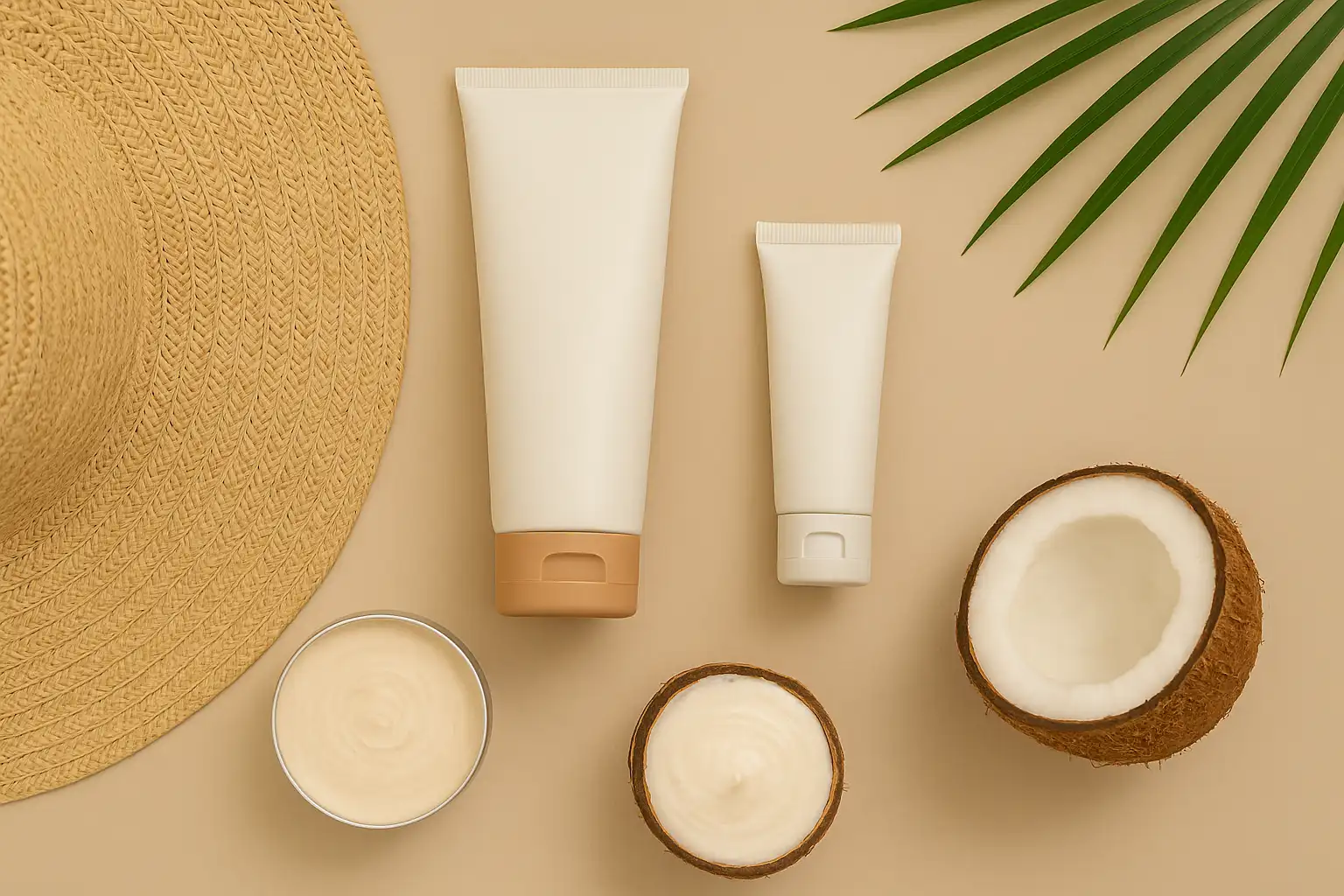
Shielding Your Skin, Protecting Our Oceans: The Essential Guide to Clean, Reef-Safe Sunscreens
Insights on clean sunscreens that don’t harm coral reefs in a sustainable way.
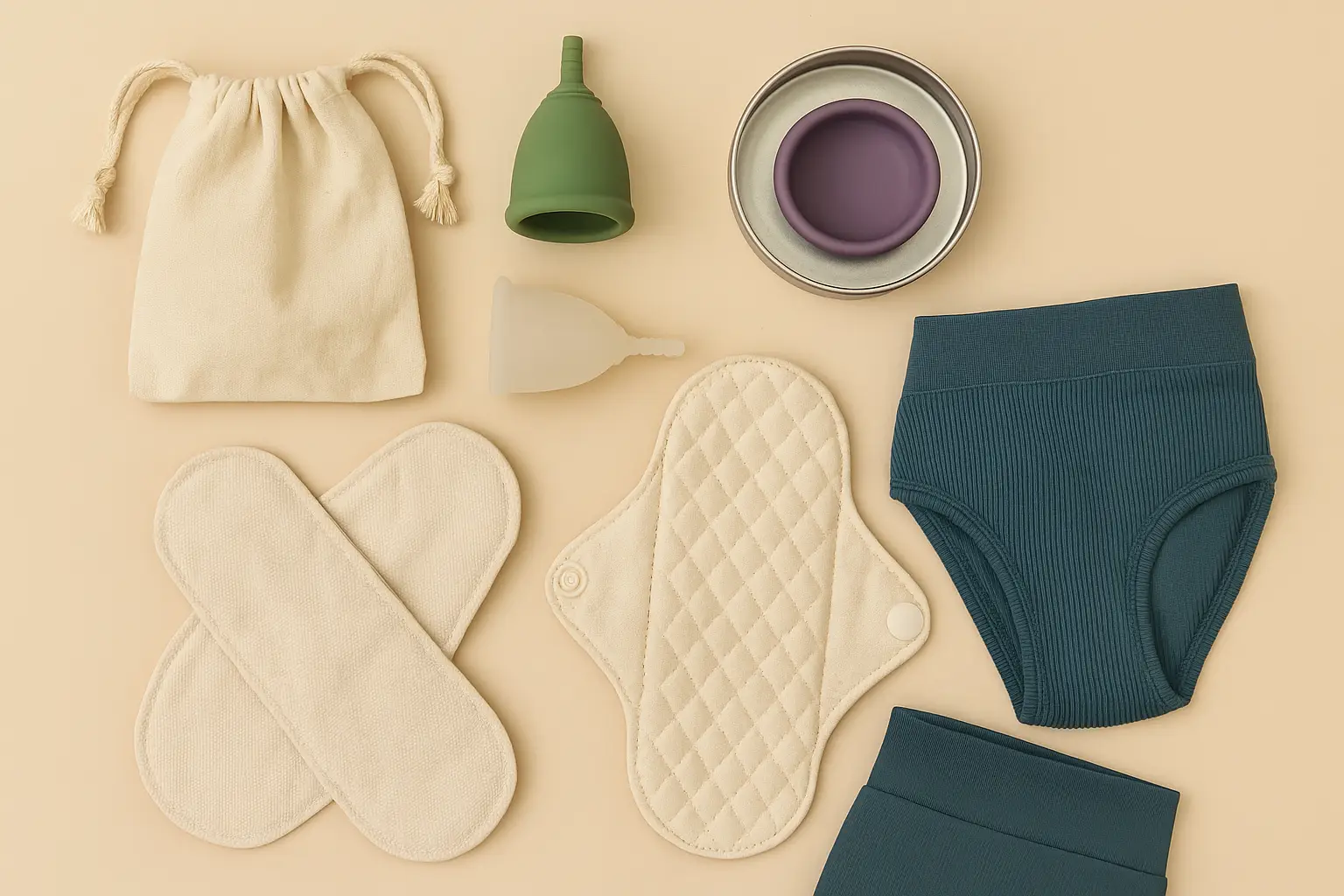
A Guide to Eco-Conscious Period Products
Insights on eco-conscious period products in a sustainable way.
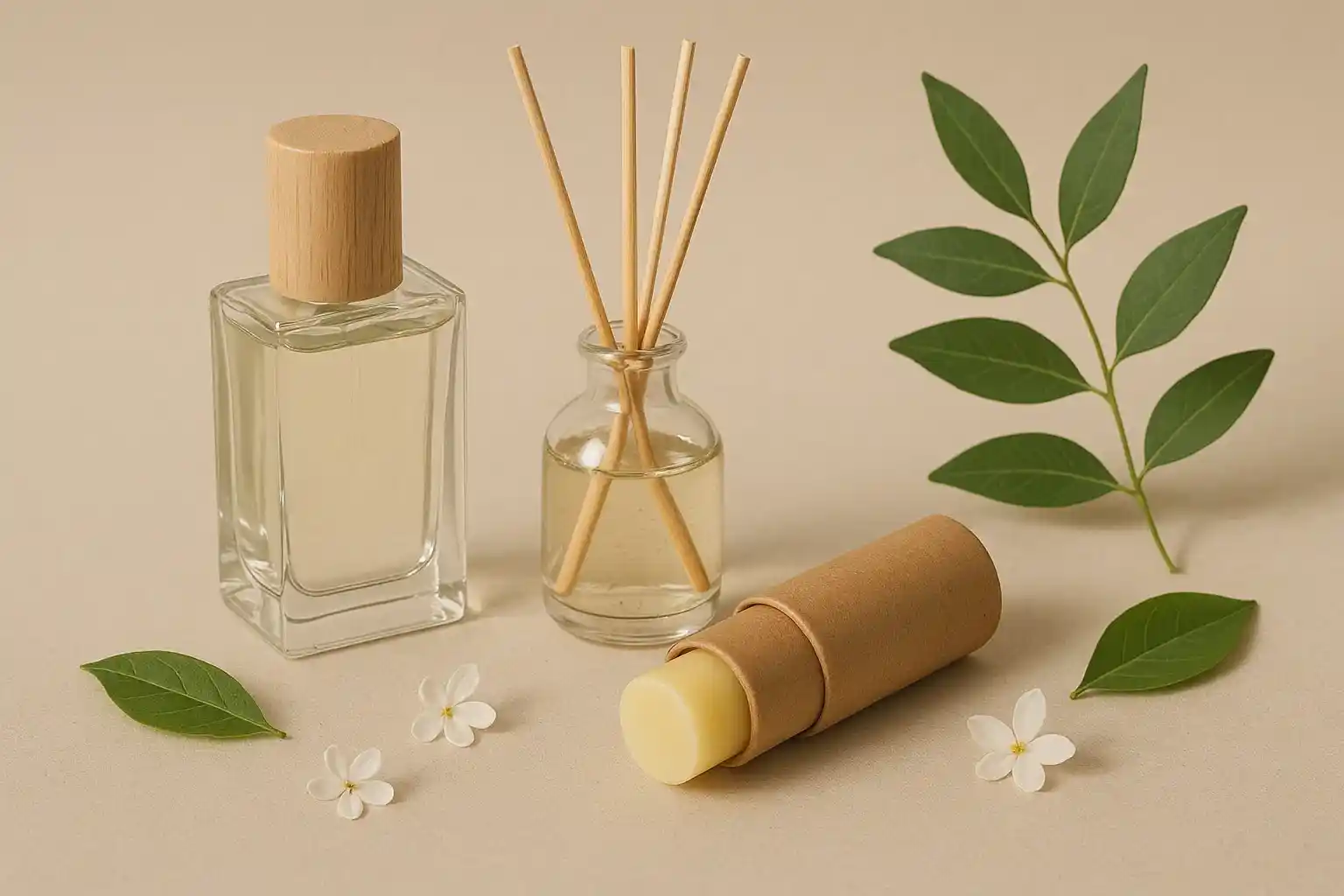
Scenting Sustainably: Choosing Eco-Friendly Alternatives to Perfume in Plastic Atomizers
Opt for solid perfumes, refillable glass bottles, or essential oil blends for fragrance without microplastics.
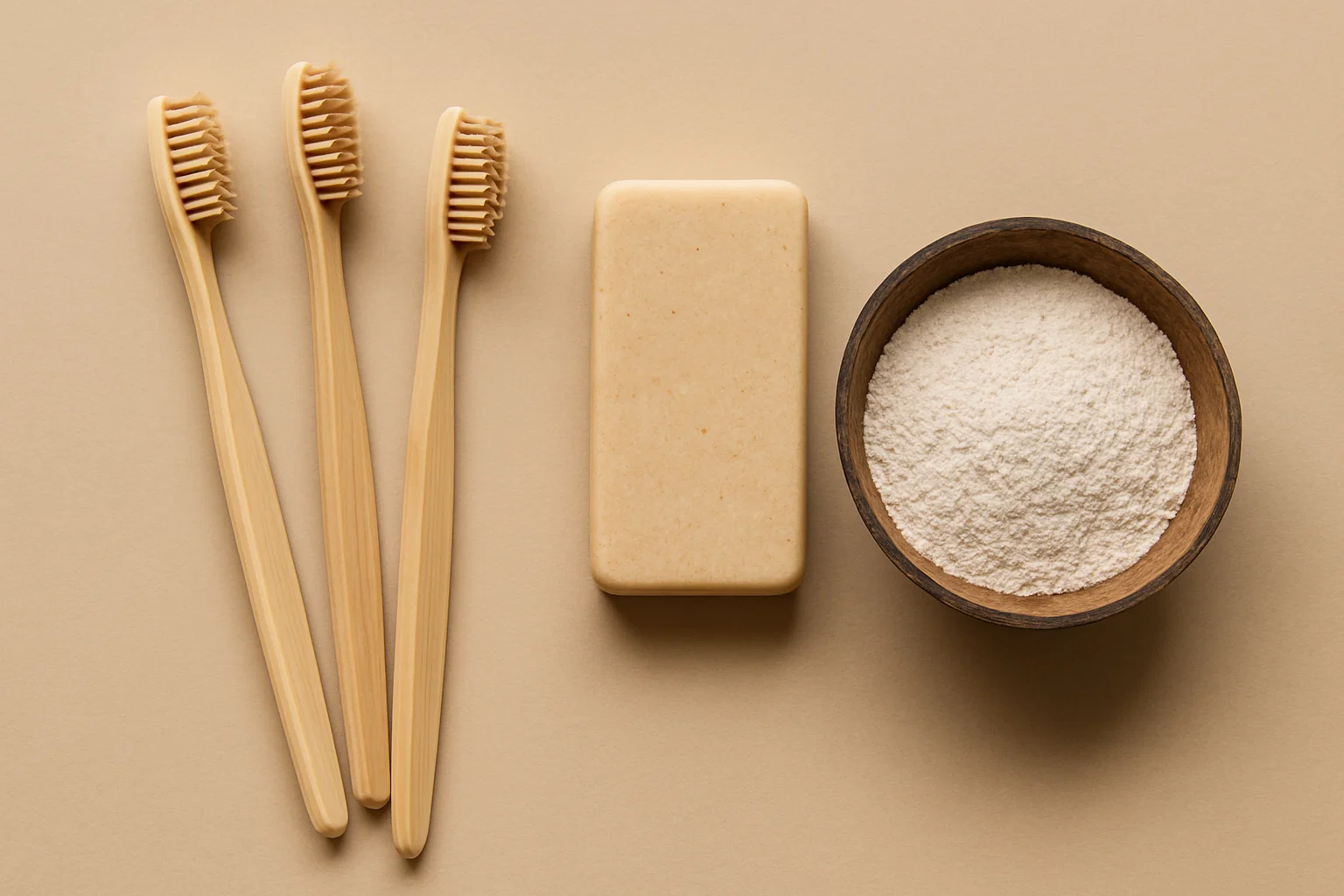
Smile Sustainably: Your Guide to Eco-Friendly Alternatives to Plastic Toothbrushes
Choose bamboo toothbrushes, recyclable heads, or miswak sticks for plastic-free dental care.
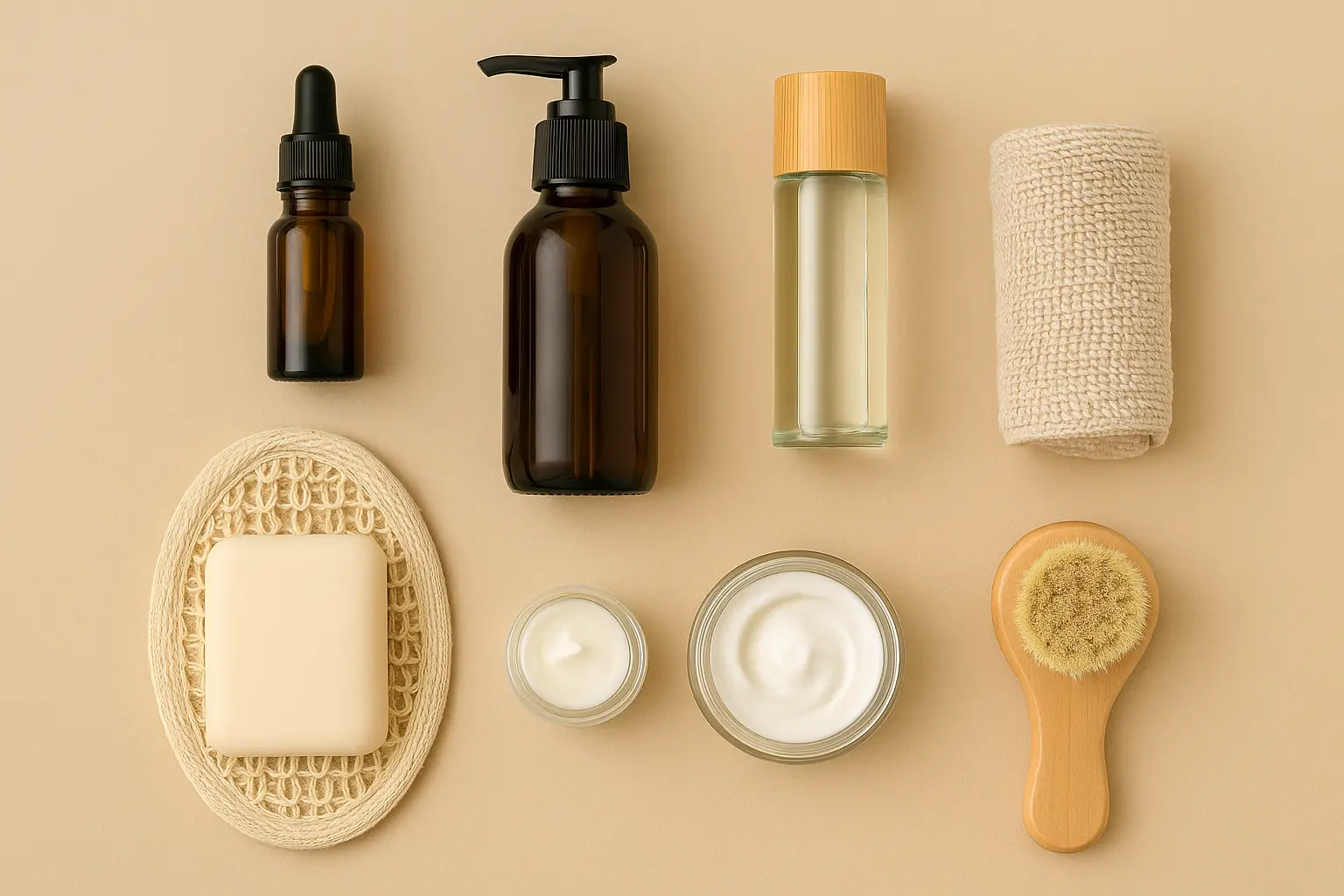
Uncomplicating Your Glow: Your Guide to Building a Minimalist Skincare Routine
Practical advice and actionable tips for how to build a minimalist skincare routine.
Stay in the Loop
Get tips and insights tailored to your interests — no spam, just sustainability.